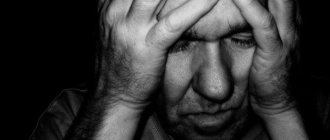Depression is one of the most acute and serious problems of modern society. In order to move away from this terrible state and find a way out of depression, when any effort on oneself is given with great difficulty, and there is no hope that enlightenment and relief will ever appear, it is necessary to understand the reasons that interfere with being happy and led to this disorder.
The way out of depression exists in the same place as the entrance, no matter how trite it may sound. It is necessary to find and solve your problem, which led to depression. Solving the problem leads to improved well-being, as well as increased personal self-esteem. It is important to try to understand yourself: with your feelings, sensations, thoughts, the body’s reaction to all external stimuli. Often, limitations in capabilities (objective, internal, external, personal) provoke this mental disorder.
For some people, it is enough to visit a psychologist several times, who will guide the person to make an independent decision on how to find a way out of depression. The task of a psychologist is to help a person understand himself, outline various options for getting out of depression, and the person who seeks help will choose the most acceptable option for getting out of the current situation. Psychology is the science that studies the patterns in the development and functioning of the human psyche. The psychologist conveys to the client the importance of the need to hear the internal state, understand the very essence of the problem and then make the optimal decision on their own.
I would like to note that recently psychologists have become active assistants for doctors in conducting psychotherapy and have come as close as possible to the practical activities of doctors. Some psychiatrists are against cooperation with psychologists, while others believe that time dictates its own rules. People are initially more willing to resort to the advice and help of psychologists than to psychiatrists, healers of human souls, to whom fear, distrust, and a reluctance to admit to oneself that something is wrong have long been formed from generation to generation. So, you have figured out the causes of the disorder and are looking for a way out of depression.
Ways out of depression
If the patient has internal causes of the disorder, then this is endogenous depression. In this case, it is necessary to compensate for the lack of a chemical substance - serotonin, which is responsible for a good mood, as well as dopamine - the hormone of pleasure. The deficiency of these hormones in the brain is compensated by drug therapy, but not only. You can get a good mood and pleasure from the life around you, but you need to learn this by attending, for example, psychotherapy sessions. At the initial stage, drug therapy will serve as an initial boost that will move the patient from his place, from the bed and allow him to get up, as well as take the first steps towards recovery.
Observations of patients experiencing painful feelings of depression are interesting. According to their stories, they experience a deep-seated depression inside, which does not give the strength to begin any action and poisons life so much that the person wishes death to himself, but often he seems cheerful and satisfied with life to those around him. Patients in this state perceive cheerful music and fun as a “feast during the plague.”
Often, as psychologists and psychotherapists state, depression is a recurrent phenomenon. Patients should know about this and calmly accept it without fear. With the right attitude and treatment, this condition recedes and the sufferer can lead a normal life. If a patient’s depressive disorder is caused by traumatic factors, then this is exogenous depression and the ways out of depression will be different than with endogenous depression. Treatment of depression in this case is aimed at eliminating psychosomatic disorders: abdominal pain, headaches, digestive disorders, insomnia, tachycardia.
Sadness and depression
Depression is an illness that affects an increasing number of people. When diagnosing and treating depression, the patient’s environment, his family and loved ones are very important. Often they are the ones who recognize the first symptoms of the disease, and they try to help the depressed person.
How to distinguish sadness from depression
The differences between normal sadness and depression may relate to both the severity and duration, as well as the quality of the mood. The context in which sadness occurs is also important. The first episode of typical depression appears before age 30. However, there is a dependence: the earlier a child gets depressed, the easier the disease process is.
When the disease develops in adults, the main symptoms are a tearful mood, significant limitation of interests, and a lack of feelings of pleasure associated with performing activities.
You may also notice changes in your diet (decreased or increased appetite) and frequent problems falling asleep (excessive sleepiness may also occur). People suffering from depression experience unreasonable guilt and a significant decrease in self-esteem .
Getting out of depression on your own
A depressive state does not allow one to move or do anything, blocks any desires, as well as physical and moral strength, provoking aggression and irritation to all attempts by the immediate environment to bring the sick person back to life. A person does not see the point in further existence, and therefore in everything that others do and what his loved ones call him to do.
For people who are depressed, the state feels close to the collapse of the world. For them, the past, like the future, appears terrible and disgusting. A depressed person loses the ability to talk about anything except his apparent and real problems. For those around him, he also becomes uninteresting, boring, and many often stop communicating with him. Over time, depression is replaced by loneliness, which can push a person to suicide.
Getting out of depression on your own without medication involves strong motivation. A sick person’s motivational desire must be burned from the inside so that he believes in its significance and importance for himself personally. Only this will serve as an impetus for getting out of depression on your own.
Many people ask doctors how to help themselves if the state of distress is very strong, and the solution has been delayed due to lack of money, the desire to live, eat, and the inability to sleep peacefully. In this case, you need to understand yourself and answer the question of what exactly makes you unhappy. Having understood the reason, think about how to solve this problem.
Reviews about the treatment of depression are as follows: initially, accept your condition and learn to live with what you are no longer able to change. Don't torment yourself with past memories, losses, losses. Try to remember only the good things that happened in your life. Look to the future with hope.
The way out of depression after a breakup, divorce, or death of a loved one, according to people’s reviews, is this: find a person who truly cares about you. Only he will help and pull you out of a depressed state. It will serve as a lifeline.
A quick way out of depression includes taking medications. For example, Tenoten is a homeopathic medicine that allows you to restore balance, calm, confidence, without causing addiction. The effect of the drug is delicate, with a cumulative effect; the medicine increases concentration, performance, and memory. The drug Mexiprim is also effective in treatment, which increases the content of dopamine in the brain and helps in the fight against endogenous disorder. Very good reviews about the “Calm” tablets. Being also a homeopathic medicine, they help relieve the patient’s stress, anxiety, restlessness, irritability, restore normal sleep, appetite, and relieve headaches. And most importantly, there is no addiction to all these drugs.
The psychiatrist’s task during treatment is to select the correct medications. Not all patients immediately feel an improvement in their condition. Sometimes you have to change your treatment regimen in order to find a more effective one. Antidepressants are often unable to restore happiness and fill the soul with light, but they can ease emotional distress. Antidepressants are prescribed strictly by a psychotherapist taking into account your condition.
Depression and environmental support
It is very important to give the patient a sense of significance for the environment or to encourage him to take actions aimed at improving his mental state.
Support in accepting therapy or treatment gives him a sense of security and stability. Then he will feel more confident even in the most difficult situations and overcome adversity more effectively. Such actions give him comfort and the opportunity to calmly solve his problems.
How to help someone with depression
- It is necessary to find time to show the patient love.
- Help in maintaining interest in your hobby or finding a new one.
- Encourage spending time with friends.
- Give the opportunity to talk in an atmosphere of trust as often as possible.
- Let him know that he can ask for help at any time.
Despite your age, it is very important that people from your inner circle react to the problems and difficulties of other people. This may provide a chance for improvement, rapid recognition of the problem, or the initiation of appropriate measures to help the depressed person .
Interest and support for a person suffering from depression creates comfortable conditions for him to return to health and gives him new strength to solve his problems. Individuals who can count on others for help have more motivation to work and a desire to make a difference.
The help of the environment is essential for recovery. Support and understanding of the patient is a form of help that does not require much effort and allows you to achieve good results.
Ways to get out of depression
Resort to any physical activity, because it is occupational therapy and sports that contribute to the production of endorphins, which will significantly improve your mood. Physical activity is as effective as psychotherapy and antidepressants.
Four-legged pets (dogs, cats) help in the fight against mental illness. By stroking animals, people's blood pressure and pulse normalize and their mood improves. In particular, caring for a cat relieves physical stimulation in a short time. The arising desire to stroke a cat gives a person long-awaited peace through energy exchange, thus, four-legged animals help restore mental balance.
It is very important to diversify your daily menu by enriching your diet with a variety of foods. Listen to your body, what you want most. At the same time, forget forever about alcohol, which only temporarily lifts your mood without solving your psychological problem.
Nutrition for depression should be fortified and filled with micro and macroelements. Below you will find important foods necessary for the body during a depressive disorder.
- Carrots, green leafy vegetables, pumpkin, apricots are rich in vitamin A.
- Fruits and vegetables (in particular black currants, citrus fruits, cabbage, kiwi, broccoli, rose hips) are rich in vitamin C.
- Cereals, liver, yogurt, bran bread, pumpkin, avocado, lean meat, nuts, fish, brewer's yeast are rich in B vitamins.
- Vegetable oil is rich in vitamin E.
- Green vegetables, herbs, figs, grapefruits, tomatoes, carrots, buckwheat, nuts, peas, oatmeal are rich in magnesium.
- Milk and dairy products are rich in calcium.
- Lean meats, eggs, seafood, yogurt, nuts, and cheese are rich in zinc.
- Egg yolk, sprouted wheat grains, beef liver are rich in choline.
- Bran bread, honey, sweet fruits are rich in glucose.
Nutrition for depression should be as saturated as possible with substances that will increase the abilities of adaptive systems. Herbs (Schisandra, Ginseng, Kombucha, green tea, Echinacea) have this property. Their use is important for nervous exhaustion that occurs after intense mental activity.
Often, a person in a depressed mood eats a variety of foods and this helps for a while, but then the condition only worsens. Therefore, it is important to properly develop a diet for depression, taking into account the usefulness of the products, and not just filling the stomach. It is important to know what properties the products have in order to achieve the desired result or maintain the body in the desired tone.
Spinach, lettuce, paprika, cabbage, rich in cytofin and opiate, improve mood. Milk contains casomorphine, a morphine-like substance. Beer is marked by the presence of morphine. Bananas contain serotonin, which gives a person a feeling of fun and lightness. Chocolate has endorphins, which have a stimulating effect. All sweets can make a person cheerful, since the glucose contained in the products turns on the happiness mechanism in the brain.
Methods for getting out of depression include relaxation, but not drinking alcohol. Relaxation in the system, for example, is meditation, which releases endorphins into the brain, thereby lifting your mood. Often the term relaxation is applied to the body, and meditation to the brain. But both methods can calm, restore balance in the body-brain systems and help overcome depression.
Free yourself from chronic dissatisfaction by learning to relax. This is facilitated by massage, self-massage, auto-training, aromatherapy, music therapy, dance therapy, rebirthing (breathing psychotechnics). It is very important to avoid lack of sleep, which can lead to nervous system disorders. Sleep produces hormones that are responsible for restoring body functions.
There are various ways to get out of depression, but only you can decide for yourself what exactly will help. And by making a decision and believing in yourself, you will achieve good results in the fight against mental illness. Since you are here, it means that you are already improving your condition by learning something new for yourself. The main thing is to believe in yourself and not give up. It is clear that prolonged and deep depression completely takes away all bodily and mental strength. You just wait, and gray everyday life turns into empty weeks and nothing changes in your life. Doctors in this regard say that patients should know that this is just a condition that will definitely pass, but how quickly this will happen depends on you personally.
Depression is a mental condition that suppresses our lives, prevents us from being ourselves and is experienced by a number of characteristic symptoms.
Various manifestations of depression:
- low mood;
- a person feels internal pain in the body;
- the brain cannot formulate your thoughts properly;
- one thought can take possession of a person and become deeply rooted in the head, creating anxiety and concern;
- a person cannot, as before, understand people’s hints and what they want to convey to him;
- a person does not feel the emotions of other people;
- isolation;
- constant pessimism;
- apathy and loss of meaning in life;
- distrust of people, willingness to defend themselves from people;
- the person takes everything with hostility and is overly irritable;
- feeling that life is over;
- suicidal ideation;
- avoiding responsibility for oneself and one’s actions even in trivial situations;
- indifference to the joys of life;
- a person blames himself for everything and engages in self-flagellation.
All these symptoms affect in such a way that a person may even experience digestive problems or headaches.
Reasons for appearance
Causes of depression (depending on the level of awareness):
- diet;
- disrupted routine, sleep deprivation;
- your causal and unreasonable expectations;
- responsibility;
- avoiding problems;
- self-flagellation;
- negative thinking;
- judging others;
- trying to change others;
- trying to please others;
- comparing yourself to others;
- distinguishing oneself from others;
- attachment to people/things;
- dependence on the result;
- bad social circle - unconscious people, energy vampires (more about energy vampires);
- modeling of future events;
- worrying about things that haven't even happened yet;
- doing things you don't like.
>15 useful realizations
Let's look at 15 tips from psychologists on how to get out of depression on your own.
Manifestations of depression
Manifestations of depression vary. Emotional signals include decreased self-esteem, feelings of anxiety and despair. A depressed person feels sad and tired. The patient loses interest in things that brought joy, indifference appears.
Behavior is also changeable. It is possible to suspect the development of a psychological disorder in a person if the ability to act purposefully disappears, attention is distracted, contacts with friends and family are reduced to a minimum, and in some cases alcohol or drug addiction occurs.
Also, patients with the disorder differ in their thinking patterns. Thoughts about oneself are negative, a person focuses only on the negative aspects of his own life, and feels unnecessary. It is difficult for someone suffering from apathy to make independent decisions.
In addition to emotional manifestations, physiological symptoms of the disease are also characteristic. The pattern of sleep and wakefulness changes, insomnia appears. There may be a decrease in appetite or an increase in it, which leads to overeating. Patients complain of constipation, pain in the stomach and heart. Energy levels decrease, fatigue quickly sets in, and in some cases problems in the sexual sphere are noted.
Get enough sleep and get 8 hours of sleep to have a lot of energy in your body
Pros of a good 8 hours of sleep:
- When you sleep, you replenish your vital energy.
- Your internal dialogue is turned off.
- In a dream, you no longer have the worries that bother you in reality.
- In a dream there is no past and no memory of a bad past, just as there is no future.
To fully replenish your vital energy from sleep, wear a night blindfold. When you are in complete darkness and there is absolutely nothing shining into your eyes, the energy after sleep appears many times more.
Make sure you close the window with curtains and there are no streetlights shining from the streets.
Why is it important to get enough sleep:
- When you don't sleep enough, your psyche is more fragile.
- A person who does not get enough sleep in society will be more influenced by negativity; he will easily lose control over the situation and, above all, over himself.
- Thus, a bad experience is consolidated in the mind, which creates a desire in a person to close down and avoid this negative experience.
- Later this can result in internal pain. Therefore, it is very important to get enough sleep in order to worry less about thoughts about how to help yourself get out of depression.
Types of depression
First, you need to figure out whether depressive symptoms have reached the level of a disease or whether this is a manifestation of a secondary depressive syndrome within the framework of the underlying condition.
Depressive syndrome has less pronounced manifestations, the cause of these disorders is clearly visible, the manifestation of symptoms is not stable: short “light” and “dark” periods replace each other.
When depression itself is felt by a person as a painful state of loss of strength, lack of interest in life and has a persistent decrease in mood.
What the wise Taoists came up with: the state of “not doing”
- Imagine such a time of your passivity among activity: when you were actively doing your business and then you give up on everything. Imagine a state when you don’t want to do anything: you don’t want to meet with friends, you don’t want to go anywhere - neither to work, nor to study.
- And you don’t have to get out of this state. If you don’t want to do anything, then you don’t have to do anything. And you no longer need help for depression at home when you simply follow these points.
- You are simply in this non-doing. You don't try to entertain yourself in this state. For example, there is no need to get stuck into computer games.
- You also go to the shower in the morning, sleep normally, go out for a walk somewhere, but this is not doing something intentionally in order to get something.
- If in this state you start to do something and feel: “This is yours and this is the goal that you want to strive for from within,” then you can try.
- If you feel squeezed at the same time, then this is not your option.
This is such an observational hibernation. You fall into this non-doing and just look at yourself. Remember this and know everything about how to get out of severe depression on your own.
You can also read about how to remove depression and despondency in another article.
How to talk to someone with depression
Although public awareness of the disease has increased as the number of patients suffering from depression increases, in many cases the condition is seen as a sign of laziness. Some even believe that depression has become fashionable. For the patient, such an opinion can cause an even greater feeling of hopelessness and helplessness. How to help a depressed patient? How to talk to a patient?
First of all, do not console him by saying: “Don’t worry,” this will not change anything, since it already seems to the patient that he cannot do anything. Lying helplessly in bed, seeing no meaning to life, and watching others carry out daily activities without difficulty, he feels depressed. Such statements can have the opposite effect by making the patient feel even more wrong.
A depressed person becomes sensitive to even small changes in the form of statements. Try to use an optimistic tone of voice and not make the patient feel pessimistic with comments such as: “It’s raining again today” or “I really don’t want to go to work today.”
If you want to provide help for depression, you should not compare the patient’s condition with someone else’s problems, for example, saying: “Others have it much worse, but they are cheerful.” Any attempts at mobilization based on comparison with others or motivating the patient to “pull himself together” are very painful for him.
Effective help for patients suffering from depression is understanding and accepting the patient’s behavior. Depression needs to be treated like any other physical illness. A person suffering from depression is very weakened, and even basic activities, such as eating or going to the toilet, are difficult for him.
Encourage the patient to perform activities that he does not have the strength to do. As he recovers his health, he himself will gradually increase his activity.
Do the opposite and opposite of what depression tells you to do.
How to apply this in life
- If you woke up and thought, “I’m probably going to stay in bed all day,” then now you’re doing the opposite!
- You don't listen to depression, otherwise it will always have power over you.
- I encourage you, on the contrary, to call your friends or get out somewhere in nature.
- No matter how it sounds and no matter how much you want the opposite, you need to force yourself to get out of the house.
- You might have a great time! Who knows? But you will never know unless you challenge your condition. This way, you will no longer worry about how to deal with laziness and apathy.
Follow these rules and remember them.
By following them, for example, a woman after giving birth will answer questions about how to get out of postpartum depression on her own. Or the man will perk up and find himself.
How it works
- If every time depression appears you just obey it, it will become even stronger and worse for you. As you continue to listen to this voice, you will feel worse and worse. Why do you need it?
- So start doing positive things so you can be prepared for a positive outcome! For example, if you keep doing negative things, it would be foolish to expect a positive result.
Keeping this in mind, you will know everything about how to help a person get out of depression.
Treatment of depression
It is worth remembering that recovery is accompanied by sudden changes in well-being. Therefore, the patient should not be thrown too quickly into the whirlpool of life, as if a slight cold had passed. When he reaches health, he will still feel weakened, so the requirements must be adjusted to his capabilities. Treatment for depression may take longer and it is worth being prepared.
The patient’s loved ones, tired of responsibilities, may have many unpleasant emotions (anger, grief, guilt, chronic stress). Often the patient's caregiver has suppressed feelings of anger or guilt because he wants to break away from the patient and his world, but cannot. Therefore, it is important that family members of someone with depression take time for themselves.
Rest and recuperation are very important for their well-being and vitality. Once the patient's health has been restored, some other form of rest should also be considered.
Suffering is necessary until we realize that we no longer need it
- The situation is that people with difficult life circumstances are much more likely to start taking care of themselves.
- In the most desperate situations, a person can begin a search: a search for himself and finding meaning in suffering and life. As a rule, it is the deeply doomed people who begin to take care of themselves.
- Those who are doing well will most likely not want to question their well-being with their own thoughts. “Why ruin something that brings you pleasure?” – appears involuntarily in a person’s mind.
- Suffering is necessary because it creates conditions in which a person can no longer endure. Then the person begins to run, move, and look for solutions.
- Some discover a new world, a new self and change their lives. Some disappear into pleasures and various kinds of addictions.
- Nothing helps us grow like suffering and fear.
- Suffering is necessary until we realize that we no longer need it. Remember this, and you will close your questions about how to get out of depression.
Wise words
Quote from one person.
“Having spent several months almost on the brink of life and death, I remember walking through the streets of the city with a smile on my face and could barely pronounce the words: “I wish you all suffering,” where I meant “I wish you all to realize the true gift that pain and suffering bring us and thus free ourselves from them.”
Subsequently, my attitude towards the hard lives of others became different.
I stopped being afraid of someone suffering.
Understanding the great value that pain, disappointment and suffering brings, I allow a person to experience this and direct him deeper into this suffering (to the source), if I have such an opportunity.
Looking at my life, I can say that I am happy with all the illnesses, shocks, experiences and “failures” that I have had.
They were the ones who helped me the most."
That's all. Now you know everything about how to get out of depression on your own.
Psychological help for depression
Psychological help for depression is a set of measures aimed at eliminating various manifestations that cause an unpleasant mental state that suppresses and depresses a person’s life. Before talking about depression, you should learn to differentiate a normal low mood from a true depressive state.
If the problem is expressed in a bad mood, then only methods are needed to solve it. For example, a bad mood can be eliminated with the help of sports exercises or something sweet (chocolate, dried fruit). In more serious cases, the individual needs psychological help, as well as independent work on himself.
One of the types of psychological assistance is psychological counseling. Psychological counseling originates from psychotherapy and is aimed at a clinically healthy individual who finds it difficult to independently overcome everyday difficulties.
In simple words, the main task of psychological help for depression is the following:
- providing support, searching for a way out of problematic life circumstances over which a person seems unrealistic to win;
— awareness and change of behavioral patterns in making fateful decisions;
— settlement and resolution of current life difficulties;
- achievement of intended goals.
The purpose of psychological counseling is corrective action, as well as solving problems that are aimed at achieving self-development, personal growth, and success in life.
Psychological help for depression is necessary if a person has had the following signs and manifestations for a long time:
- loss of mood, apathy;
- feeling of internal pain in the body;
- lack of any desires, inability to enjoy life, indifference to everything;
- inability to formulate thoughts;
- the appearance of anxiety and concern;
- lack of ability to feel the emotions of other people; constant pessimism, isolation;
- loss of meaning in life, abulia;
- distrust of people, irritability;
- constant readiness to defend oneself from people;
- suicidal thinking, feeling of the end of life;
- avoidance of responsibility in trivial situations for oneself and one’s actions;
- blaming yourself for failures and self-flagellation;
- digestive problems, headaches.
Psychological help for depression - advice from psychologists:
— depression is not as harmless as it seems to many at first glance. In this state, the individual is capable of experiencing emotional, depressed depression, even mental disorder;
— depression can overtake a person after certain negative events in his life. Sometimes its appearance is not associated with external reasons. A person’s state during depression often changes, apathy and helplessness, melancholy, and anxiety for any reason occur. A person often feels guilty and considers himself intellectually bankrupt. He has absolute lack of will, mental and motor activity decreases. Many different pronounced symptoms and signs appear (chronic fatigue, changes in appetite, insomnia, decreased libido). In such severe cases, psychological help for depression is simply a necessity;
- if a depressive mood is observed without the above symptoms, then to alleviate the condition, it is necessary to accept oneself in the state in which the person is. You should not avoid depression and fight it hard, this will only worsen your well-being. An unpleasant state or mood for a person must be lived through, and resistance to poor health and avoidance of it will only lead to increased depression. It should be realized that depression for people who are engaged in self-development, do not get enough sleep, and work is a common manifestation, part of growth and their life path. The depressive symptoms associated with this will go away as quickly as they came if you tell yourself: “This is unpleasant, but these are temporary manifestations and they will definitely pass for me!” With this attitude towards your condition, you will not need the help of a psychologist;
- it is very important when you are in a depressing mood to redirect your focus to other activities: for example, reading books, physical exercise, cycling, swimming, traveling, etc. Thus, by completely and completely immersing himself in other activities, a person will get away from his problem that bothers him. And after a while, the long-standing problem that haunts you will seem not so significant;
— when a person feels a depressive mood approaching, psychologists advise clinging less to positive emotions and not being afraid of losing them. And you don’t need to be ideal emotionally. After all, when a person clings to positive emotions and tries to hold on to them, his internal resistance to actually occurring events grows. When an individual resists the occurrence of bad emotions, he only intensifies their occurrence. People tend to chase positive emotions - something that is not constant, that comes and goes. It turns into an endless race for them. If a person stops trembling and being constantly delighted with positive emotions, then he will begin to suffer less from depressive manifestations, and he will no longer be affected so much by negative emotions. This does not mean that you need to stop experiencing joy, just being at an emotional peak, you need to enjoy positive emotions, realizing that this will not last forever. Having realized this, they will not be bothered by questions of how to get out of depression on their own;
- if situations arise when you are overcome by problems, “stress” at work, and a person does not know how to survive it, then in this case you should be open to people and ask them for help. You just need to tell the person: “I have anxiety of this kind and I feel bad. Please advise what I should do in this situation?” Help by communicating with strangers or loved ones is cleansing. Having voiced those things that worsen well-being, accumulated and irritate, allows them to leave the person. And you shouldn’t always rely on the advice of friends, it’s important to just be around them. When you are in a bad mood, you should focus only on positive people and not pay attention to other individuals. When an individual allows others to positively influence him, then his worries, fears, and negative emotions are repressed;
- It is very important for a person who is in a depressed state to get enough sleep. A person who does not get enough sleep has a more unstable psyche; in society, he or she endures the influence of negativity more easily, and easily loses control over himself and the situation;
- many happy people have come to the realization that life is meaningless, but this does not stop them from enjoying life, reaching new heights, doing “crazy” things and moving on in life;
— it is always necessary to have a goal in life, to know what a person wants from life, otherwise a person will not receive inspiration and the necessary energy to implement plans. People with big goals always have a lot of energy, passion, motivation;
- you shouldn’t make yourself a special victim, you need to make a choice to move on in life and not worry when you don’t have the strength to do anything;
- it is very important to find advantages even in the negative, to train your mind reflexively, turning any problem into fun and a joke. Everything that a person perceives negatively can be seen in a positive way. This can be achieved if you learn to laugh at yourself and your condition as a suffering person;
- You need to leave the house more often to breathe fresh air. This will strengthen the immune system, relax and give peace to the nerves, promote good sleep, improve blood circulation and appetite, speed up metabolism in the body;
- we should not forget about communicating with pleasant people and a healthy lifestyle - all this together has a positive effect on a person and will gradually return him to the previous rhythm of life;
- if a person continues to do negative things, then it would be foolish to expect a positive result. Therefore, you should start doing positive things and then a positive result is inevitable;
- You should never ask other people for pity. A person mistakenly believes that he feels very bad, and does not know that it could be even worse;
- You should never feel sorry for yourself and justify yourself. One must treat life as a journey in which every day an individual learns to be even stronger than he is now;
- if there is a need for sweets, you should not refuse it. There is nothing wrong with eating a bar of chocolate or your favorite cake when you are depressed, but a refusal or a diet will negatively affect your well-being and result in a loss of zest for life;
— suffering is necessary for a person until he realizes that he no longer needs it. Nothing helps a person grow more than fear and suffering. Suffering creates unbearable conditions for life, and the individual begins to understand that he can no longer live suffering. And then the person begins to realize that he should look for ways to solve his problem. Some individuals discover a new world in this way, change themselves and their lives. Other personalities disappear into various addictions and pleasures. It is precisely through difficult life circumstances that people begin to take care of themselves. Because in desperate situations, an individual begins to look for himself and meaning in life. Therefore, it is precisely the deeply doomed individuals who begin to take care of themselves. Those individuals who are doing well do not even think about changing anything in their lives. Why ruin something that already brings pleasure? That's what they think. Therefore, it is suffering that creates the conditions for a person to think about how he lives. Therefore, it is important to realize the great value that comes with pain, disappointment and suffering. By looking at your life from a different angle, you can be grateful for all the shocks, illnesses, experiences and failures that a person has had. They are the ones who help you the most in life.
With depression, an individual's self-esteem becomes low, and the person turns into an insecure person. Psychological help for depression significantly changes self-esteem and returns general confidence to the individual. Many individuals also benefit from relaxation or special auto-training.
Author : Practical psychologist Vedmesh N.A.
Speaker of the Medical-Psychological
We are on Telegram! Subscribe and be the first to know about new publications!
Depression in alcoholism
Alcoholic depression often has a mixed character. There are both personality traits that prevent a person from adequately coping with all life’s difficulties, which creates a certain depressive background and the desire to cope with the situation with the help of alcohol, and the toxic effect of alcohol metabolites causes damage to the cerebral cortex, which is an organic cause of depression in the patient’s mental sphere.
The addict's depression intensifies during alcohol withdrawal syndrome, has a sad and angry character, and can be accompanied by ideas of accusation and delusions of jealousy.
Postpartum depression
This topic requires writing a separate article, and it is on our website. But for a general idea, we will describe the signs of postpartum depression in 2 words.
The physiological and psychological changes in the female body during pregnancy, childbirth and after the birth of a child are so great that failure in these areas is completely justified. Initially existing circumstances: an unwanted or difficult pregnancy, a breakdown in relations with the child’s father, lack of help from loved ones, existing illnesses are unfavorable factors for the development of a depressive state after childbirth.
Such depression manifests itself in a very unusual way and is often interpreted by the patient herself and those around her as fatigue, bad character or moodiness and is in fact a sign of a mental disorder. So, a young mother is annoyed by her child or she loses interest in him. She may be aggressive towards him or overly concerned about his health. Along with this, there are other signs of illness on the face: asthenia, sleep disturbance, anxiety, perversion of appetite, etc.
Seasonal depression
Depression, in itself, is a sun-related disease. No wonder physiotherapists treat her with white light. Some experts distinguish seasonal depression as a separate form. With this type of depression, there is a clear cyclical pattern of symptoms depending on the time of year or weather. Neurophysiologists even explain this by the production of serotonin from the amino acid tryptophan in the sun. In bad weather and at night, serotonin turns into metatonin, which causes drowsiness and calm.
There is practically no mental or physical illness that is not accompanied by depressive syndrome. Another thing is how much this affects a person’s general well-being and whether there is a danger of aggressive actions towards oneself. If you can no longer cope with your mood or have heard from a loved one thoughts about wanting to die, this is a sufficient sign to run to a psychiatrist.
Depression in schizophrenia
Depression that accompanies an exacerbation of the disease requires mandatory hospitalization and rapid administration of medications. Usually such states are accompanied by a feeling of universal melancholy and hopelessness. This can be either a reaction to the disease itself or be included in the general structure of delusional ideas.
The depressive state in schizophrenia reaches its apogee with Cotard's syndrome. The patient is in a sad and anxious mood, claims that he is a great criminal and all the troubles in the world are from him. They may believe that they have unusual incurable diseases or even believe that they are “long dead.”
Postschizophrenic depression
These are residual effects after a relapse of schizophrenia, when there are no acute symptoms, but individual ideas, disturbances in thinking and mood remain. Despite the absence of psychosis, due to their greatly reduced mood, such patients can also pose a danger in captivity of suicidal attempts. Therefore, a visit to a psychiatrist and, in some cases, hospitalization are necessary.
Depression due to organic changes in the brain
Depression in organic diseases of the brain: atherosclerosis, dementia, post-traumatic conditions and other diseases of the central nervous system is usually persistent and progressive. Patients are apathetic, sleep a lot, refuse food and any pleasures. They usually don’t complain about anything and rarely ask for help. Relatives of such patients should be especially wary if a family member becomes ill and stops complaining, since they commit suicide just as quietly and unnoticed. It is better to call such a person a psychiatrist at home, and he will prescribe medications that stimulate brain processes in order to at least stir the patient up a little. If it is not possible to observe the patient at home, then it is better to place him in a hospital for this time.
Signs
Symptoms of depression largely depend on the form of the disease in which depression occurs. The modern classification of diseases does not consider the severity of depression, but many doctors continue to divide it into different levels of symptom severity. This allows you to accurately assess the patient’s condition and determine the form of treatment for the disease. The insignificant severity of depressive symptoms allows it to be treated on an outpatient basis, in a clinic. Moderate depression requires the use of antidepressants and many other medications. And its severe course must be treated only in a psychiatric hospital, resorting to injectable forms of medications and constant supervision of medical personnel.
Despite the variety of symptoms of depression, there are basic criteria that allow us to talk about the presence of this mental condition.
- constant and long-term decrease in mood;
- anxiety, restlessness, irritable weakness;
- narrowing the range of interests and level of aspirations;
- lack of feeling of satisfaction from usual activities;
- persistent insomnia, with a long time to fall asleep, early awakening and daytime sleepiness;
- tearfulness, increased sensitivity and sentimentality;
- reduction of the body's defenses, literally and figuratively;
- increased fatigue and constant fatigue;
- decreased self-esteem;
- problems with memory and concentration;
- Chronic diseases may worsen, colds and allergic manifestations may be tormented;
- poor appetite and weight loss;
- There are pains of a functional nature that are not confirmed by an objective examination.
Diagnostics
Numerous psychological tests popular among the population do not reflect the true picture of depression and the variety of its forms. They play only a supporting role in tracking the dynamics of the disease.
Tests for depression
These are: Beck Melancholy Scale, visual and drawing tests for depression, SKL-90, DEPS.
There are no instrumental or laboratory instrumental parameters yet to determine the reduced background mood. An attempt to link the blood concentrations of the main neurotransmitters: serotonin and dopamine with the clinical picture of depression was unsuccessful. The fact is that our brain is well protected from other body systems by the blood-brain barrier, where the content of these biologically active substances is completely different than in the blood. But it’s not worth getting into your head with rough tools.
The diagnosis of depression is made exclusively by a psychiatrist during a face-to-face appointment. The doctor relies on his experience and knowledge of the disease, and also uses professional intuition.
For differential diagnosis and determination of the form of depression, the doctor may prescribe consultations with other specialists: a neurologist, narcologist, endocrinologist and therapist. Laboratory tests for signs of chronic inflammation, autoimmune complexes and hormonal levels also help to exclude the secondary nature of depression. If an organic pathology of the brain is suspected, a neurologist can conduct instrumental diagnostics: EEG, MRI or CT.










